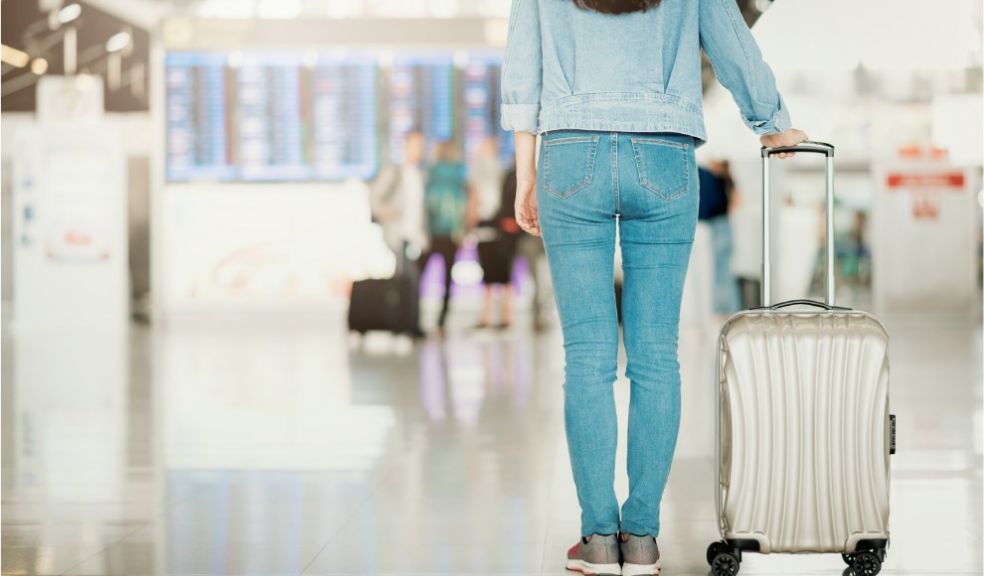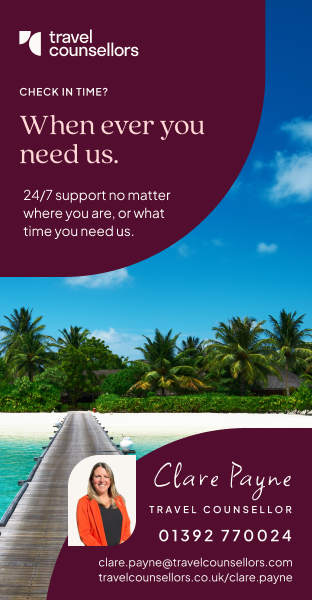
Common Pandemic-Era Travel Anxieties & Expert Tips On How To Cope
Travel is a great way to rest, recover, and relax - particularly after a tough year of lockdowns and restrictions now that the world is beginning to open up.
But for many, the anxiety which accompanies the new travel regulations such as COVID-19 tests and varying restrictions can hold us back from booking that well-deserved break.
To help hopeful holiday-lovers get on top of the obstacles and have a stress-free time, Corona Test Centre has looked at the top searches across the UK and abroad relating to coronavirus. We have also partnered with psychologists to put together some tips, advice, and information to help you have a stress-free trip.
COVID symptoms and PCR tests are the top searches relating to travel stress post-pandemic
From being uncomfortable in new surroundings, feeling anxious about the trip going smoothly and getting the correct COVID tests in time, travel can make anyone feel anxious.
We analysed the top elements of travel that the public is most concerned about and compiled a list of top tips to ensure a safe and stress-free travel experience.
|
Rank |
Cause |
Monthly Global Search Volume |
|
1 |
COVID symptoms |
1,970,000 |
|
2 |
PCR test |
1,000,000 |
|
3 |
Social distancing |
313,000 |
|
4 |
Hygiene |
205,000 |
|
5 |
Antigen test |
89,000 |
|
6 |
Antibody testing |
43,000 |
|
7 |
Waiting for COVID Tests |
36,000 |
|
8 |
Negative thoughts |
12,000 |
|
9 |
Fear of Flying |
8,500 |
|
10 |
Home test kit |
6,600 |
With 1,970,000 global searches each month, ‘COVID symptoms’ are the most stress-inducing element of travel for the public. The main symptoms are a high temperature, a new, continuous cough and a loss or change to your sense of smell or taste. If you have any of these symptoms, seek out the current government guidance.
Each month, ‘PCR tests’ see more than 1,000,000 searches globally. The test itself can be anxiety-inducing, on top of waiting for results, which will determine if you can fly. PCR, Fit to Fly, and 2nd and 8th day testing are among the range of testing requirements for travelling. To avoid anxiety around these, always book in advance and choose a trusted provider.
‘Social distancing’ has had over 300,000 global searches and given that we’ve all had reduced social interaction with others, it can be difficult for people to navigate and cope with being in crowded areas. Put precautions in place (e.g. carry a mask) so when you don’t feel safe you have the means to protect yourself.
The ‘fear of flying’ and ‘negative thoughts’ also make the search list with a volume of 8,500 to 12,000. After a period of not travelling, it can be worrying getting back on a plane. Breathing exercises and meditation can help support any stress you may be experiencing.
Expert tips for managing stress and anxiety when travelling post-pandemic:
1. Download a meditation app for the flight
Meditation is a great way to combat anxiety which accompanies flying and travel. It can help to calm and ease the mind and meditation skills can be worked on and improved with time.
Dr Rachel M Allan, Chartered Counselling Psychologist, comments:
“Stress and low mood may inhibit the hippocampus, which is an important brain structure associated with memory formation and recall. Effective stress management could therefore be an important consideration for looking after memory function. Mindfulness practice is known to reduce stress and depression.”
Lee Chambers MBPsS, Environmental Psychologist and Wellbeing Consultant, adds:
“Using mindfulness or meditation to increase your wellbeing is something that should certainly be considered. Its effect on the amygdala has been researched, and by practising we become more able to disengage from ruminating negative thoughts and connect to the present. It can decrease cortisol levels, and decrease inflammation markers, which leaves us feeling more relaxed and able to deal with the rigours of the current turbulent climate.”
2. Try to get some physical exercise before or after your flight
When feeling agitated or stressed before travel, any form of physical exercise such as taking a short walk around the airport can be a great distraction and ease nerves.
Ruth Cooper-Dickson, Positive Psychology Practitioner, says:
“Any form of exercise and being active is beneficial for the hippocampus - which is the part of the brain that acts as a brake on the stress response.
Exercise is great for activating GABBA (Gamma-Aminobutyric Acid). This is an amino acid whose purpose is to calm the brain and act as a fire extinguisher to enable brain cells to suppress their activities. GABBA activation provides quick and effective stress relief.”
Distract yourself with a film when travelling
If you feel yourself becoming anxious or frustrated, distract yourself with your favourite film or show. Make sure you download these ahead of time to avoid any connection issues, which can aggravate your feelings of stress.
Andy Phillips, Head of Training and Content at Escape Fitness, comments:
“Watching films and television shows on your phone can act as supplemental forms of therapy to help us feel better. Cinematherapy, the use of films to manage mental health issues, can improve thoughts and feelings. There are films that can evoke positive emotions and can nurture interpersonal skills.”
4. Ease anxious thoughts with your favourite music
Consider listening to comforting music to fill your head with more pleasant emotions. This can also help to act as a circuit breaker for stressful thoughts.
Dr Rachel M Allan, Chartered Counselling Psychologist, comments:
“Music requires following patterns, drawing from memory and engaging with multi-sensory feedback. It draws on many different high-level brain functions at the same time, which strengthens connections between different regions of the brain.”
5. Prioritise your downtime with a puzzle or game
Playing games on your devices, puzzles or cards with your friends or family are great ways to take your mind off feelings of anxiety or stress.
According to Dr Rachel M Allan:
“Engaging with tasks that require a combination of attention, recall and problem solving is a great way to keep cognitive function healthy, and reduce the rate of any decline. Research shows a clear link specifically between regularly completing crossword puzzles and reduced memory decline.”
















